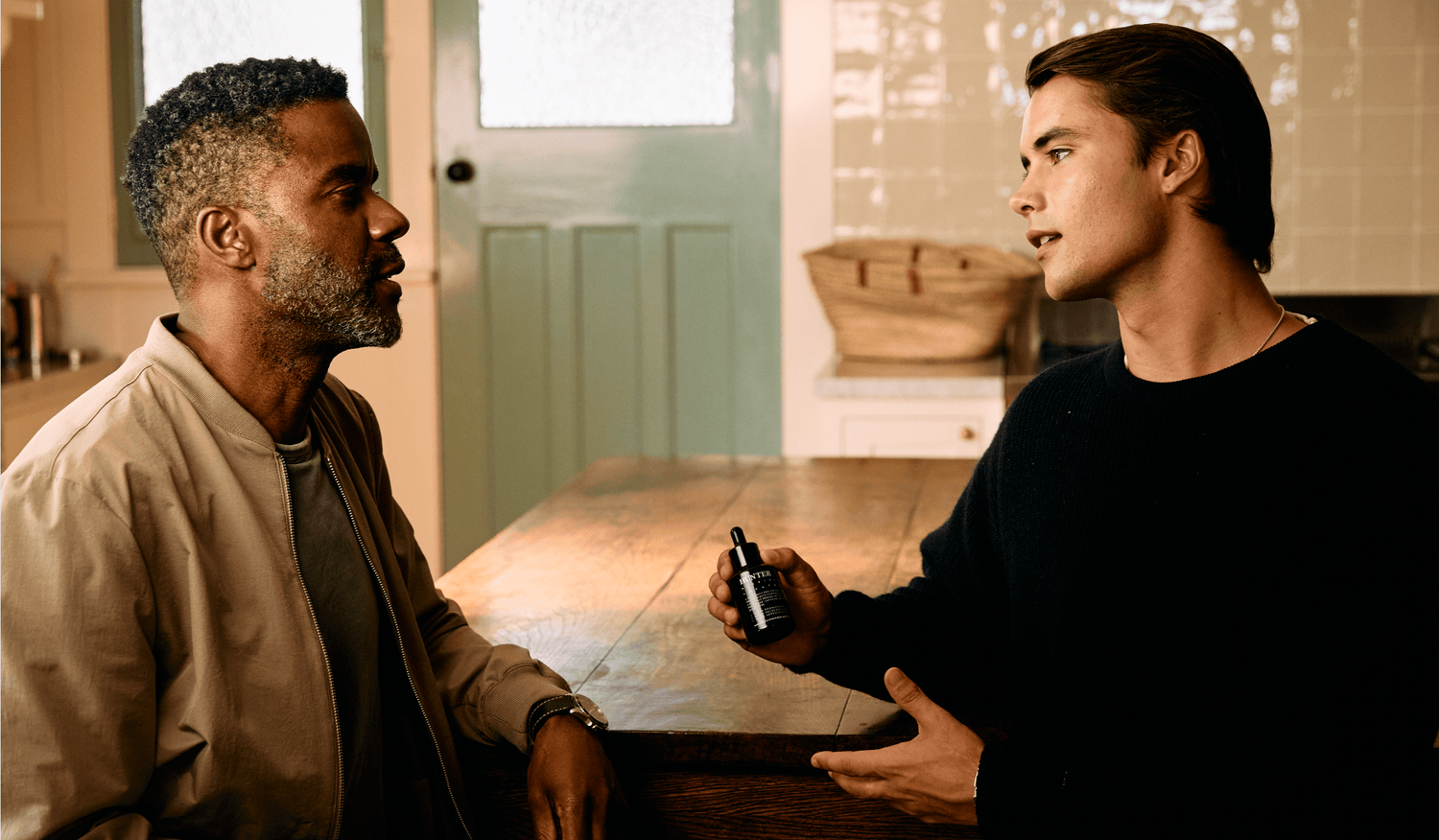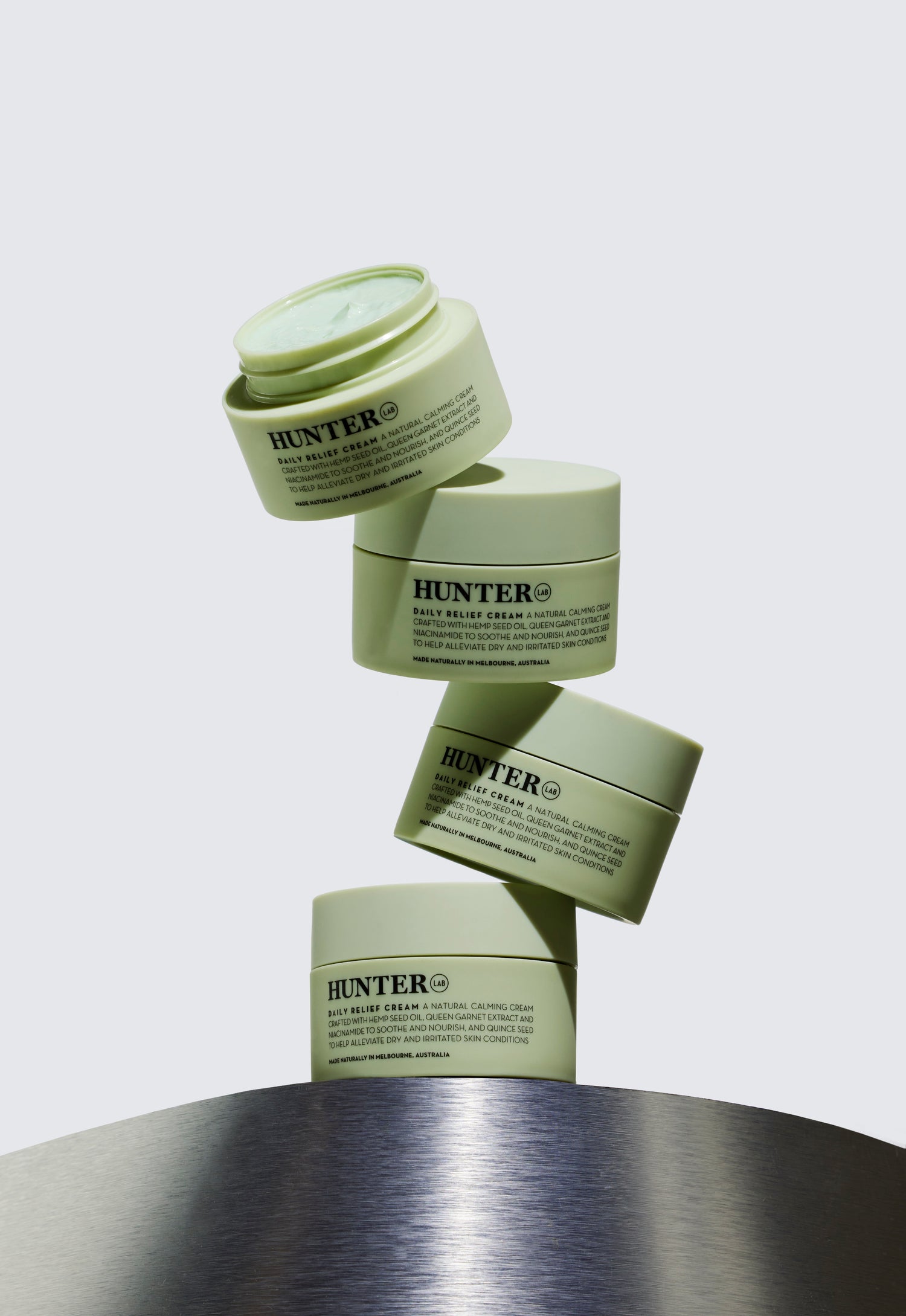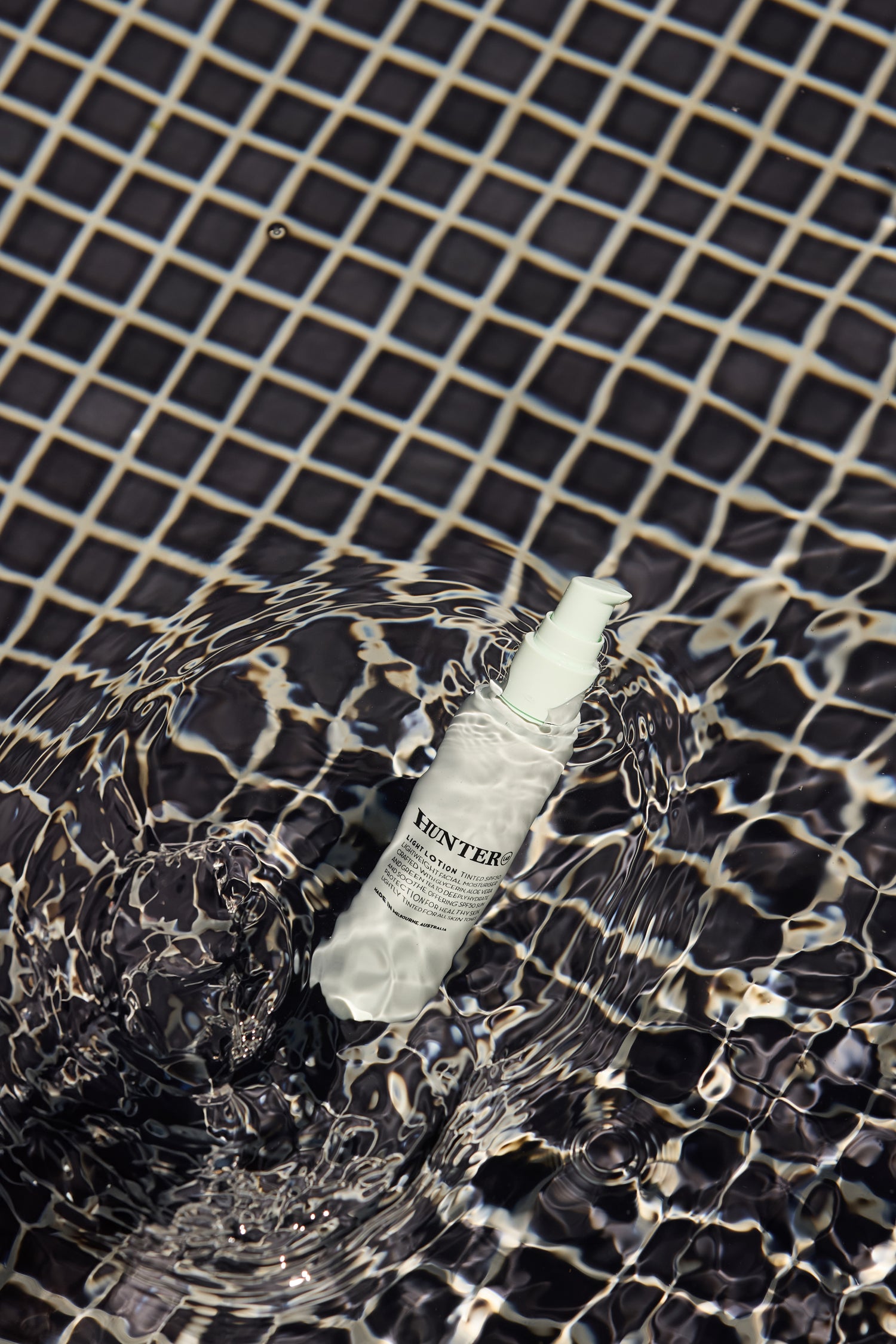Hunter Lab in collaboration with renowned Australian artist, and mother of 4, brings you the Mother’s Day Gaia Kit
The Mother’s Day Gaia Kit features the two essential body care products; the Hand & Body Wash 550ml and Hand & Body Lotion 550ml
Providing an aromatic experience, Hand & Body Wash leaves skin deeply cleansed whilst Hydrating Hand & Body Lotion provides all-over nourishment for healthy, smooth skin
UPDATE: The Mother’s Day Gaia Kit is no longer available
Hunter Lab sat down with Jo and discussed all things art, motherhood and finding time for self care.
Hunter Lab: Describe your style as an artist
Jo Nolan: I am an abstract painter.
What are you inspired by?
I grew up outside the city and so I’m drawn to quieter places. I like the energy and solitude of dawn. I practice bush regeneration. I come from a family of painters, makers, dancers, musicians and poets with the occasional rationalist thrown in. I think I draw things from all of these practices.
How did the piece of art featured came to be?
This work was one of the first to emerge when I returned to the Rozelle studio after the Sydney lockdown. During lockdown I painted amongst the chaos of 6 others working and studying from home.
How did you conceive and create this piece?
This is a painting on linen. The work is created in layers to build depth of hue. My initial layers are generally transparent. I make my first marks on the linen by hand to break the surface. I often make my first mark with venetian red which is an earth pigment but which for me evokes bodily qualities and can be both intensely delicate and strong depending on the application. For this painting I have also used two types of ultramarine blue, transparent and an ultra-saturate opaque formulation. In western painting this hue is culturally associated with material preciousness because before synthetics were developed, the mineral pigment Lapis Lazuli was rare and was used sparingly to represent transcendence and often to signify the divine feminine. In eastern traditions blues can be associated with generative energy and spring. I have also used iridescent and interference gold pigments. Gold, iridescence and interference effects have appeared in ancient iconography across many cultures. In nature, iridescence in body markings, and the relational refractions and diffractions of light occur in species to communicate things like danger, fecundity and life force.
Generally, I apply successive transparent layers sometimes wet into wet, but other times allowing previous layers to dry, which determines the way the. colours blend and present optically. Early in the process I use pouring and moving the support to draw. In later stages I use cloths and brushes, sponges and palette knives and my hands to move paint around. Sometimes I finish a painting with oil or wax layers which takes time and patience. There is a significant element of serendipity and submission to materials involved in these processes. The work develops through the time it takes to come into being and the outcome remains largely concealed until it emerges clearly enough for me to stop. I experience painting as an intuitive practice rather than an intellectual feat.
Is there a career highlight that stands out?
This is hard to answer, I think because painting is for me a continuum and a self-motivated practice that I try to take on each day. Being able to commit to making the time and space to get to the studio and create work, when the reality of life strains against it, is a discipline that I am proud of. This is particularly true of practice during the long years of parenting when there is often not the privilege of singularity. The periodic highlights for me involve making opportunities for people to engage with the work I make.
What attracted you to collaborate with Hunter Lab?
Striving for making things sustainably, with attention to material properties, transparency, fluidity and simplicity all resonated with me.
Collaborative projects with mothers are natural but motherhood itself is often relegated to the silent shadows. I appreciate the liberty of speaking frankly about mothering and making art.
What is the best part of motherhood?
Being present to the moment of birth itself, the passage of transition between two worlds is profound. It remains for me the most visceral, potent and humbling of human experiences, alongside the experience of being present at the very end of someone’s life. Birth is one of those bodily initiations where the veil between life and death is translucent and fragile. There are few words that can adequately describe the deep power of something so essentially primal.
Parenting, but particularly motherhood requires a delicate balance between presence and invisibility. It is a real time experience of the co-existence of light and dark, ecstasy and tragedy. It is unrelenting, calling on the deepest reserves of endurance, courage tolerance, creativity, constancy and unconditional love. I often describe it as triage. There are as many spontaneous combustions and unpredictable catastrophes as there are simple and pure joys. Despite the passage of time, and personal life changes, motherhood endures. I think the best part of motherhood is how humanising it is.
How has becoming a mother changed you?
Motherhood. is a physically and psychologically expansive experience and yet paradoxically at times it is isolating and lonely. I think it has offered me another lens through which I can perceive the world. It has challenged me to see beyond my own limitations and understandings of reality.
Motherhood demands humility and is, by definition, pluralist and rarely about the singular. I sometimes reflect on the memory of my former self. Motherhood can be dramatic and surreal. It has often hurled me backwards through my own childhood in order to help me navigate the complexities, before pushing me forward into entirely new terrain.
How do you practice self-care as a mum?
With a young tribe, self-care can at times can feel practically unattainable, like achieving time travel or managing any time alone in the bathroom let alone the studio. Over many years, I think I have tried to simplify expectations to come to terms with both the daily rhythms and the inevitable unpredictability of life as a mother and an artist.
I think physical connections to nature have been very grounding. Simple signifiers to myself that I exist outside of the role of parenting seem to bring in the light during the hard times. Stretching time, creating space, nurturing connections with people while also guarding silent moments, accepting the unpredictable and trying to laugh after you cry, embracing the village and developing grounding daily rituals are all part of my armoury.
To find out more about Jo Nolan, and view her artwork, visit her website here






